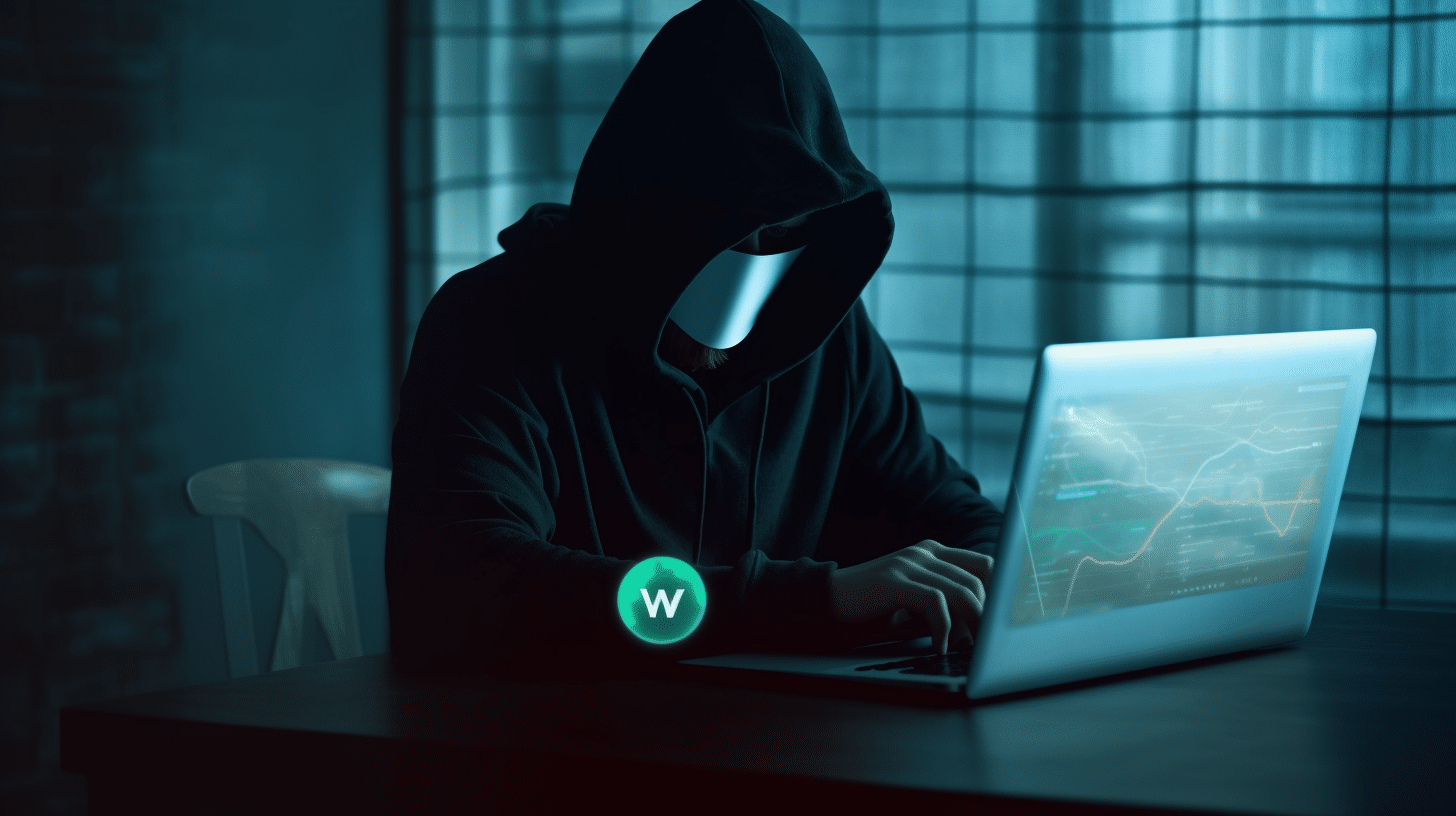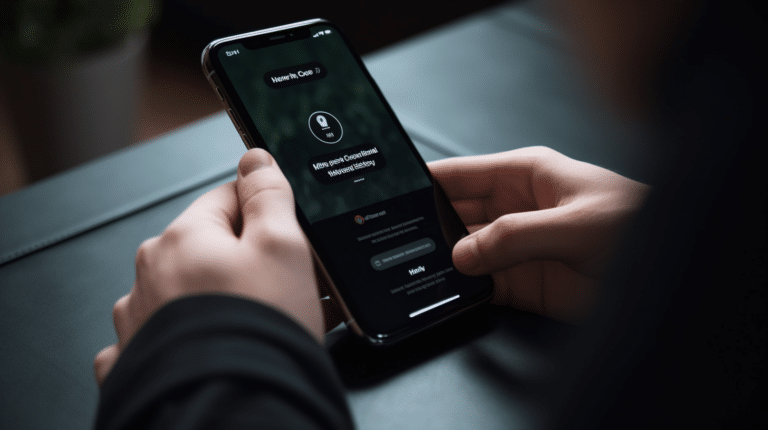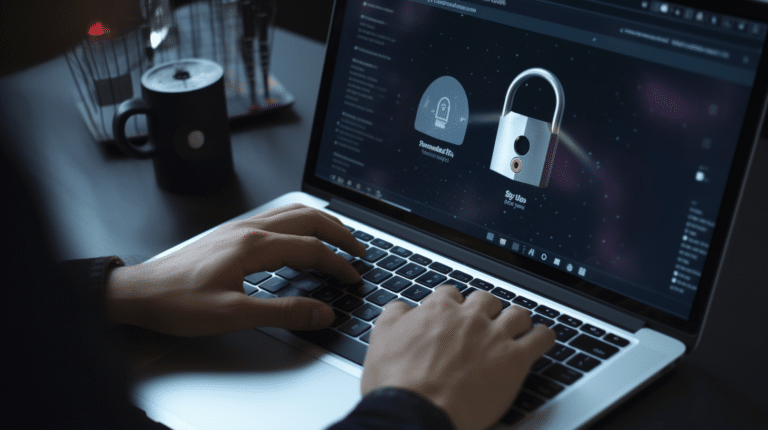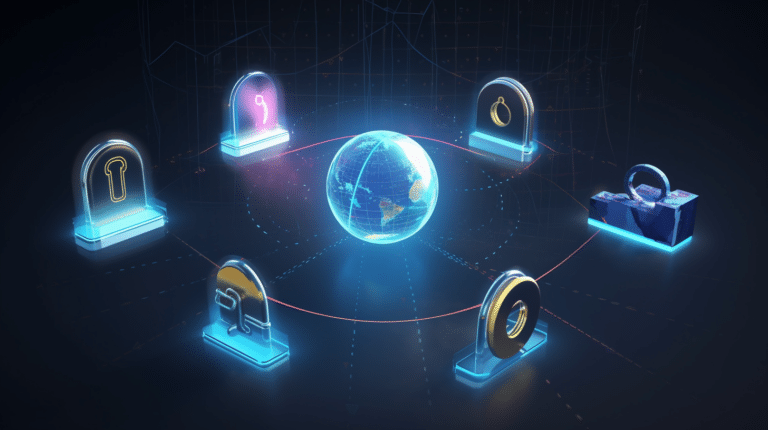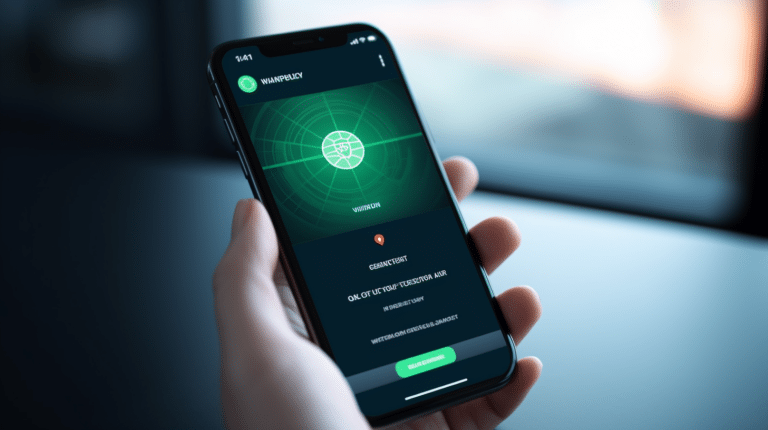Virtual Private Networks, or VPNs, have become a popular tool for individuals and businesses alike to maintain privacy and security while browsing the internet. VPNs work by creating an encrypted tunnel between the user’s device and the VPN server, effectively hiding the user’s IP address and making their online activities more difficult to track. With a significant rise in cyber threats and data breaches, many individuals have turned to VPNs as a means to protect themselves from potential hackers and ensure the safety of their personal information.
However, the question remains: can a VPN really be hacked? The answer is yes, but it is important to understand that even with the most robust security measures in place, no technology is entirely immune to the risk of hacking. That said, reputable and well-designed VPN services employ a range of security features, including strong encryption protocols, to minimize the likelihood of a breach. Users can take additional steps to safeguard their online experiences and reduce potential vulnerabilities.
Key Takeaways
- VPNs offer improved privacy and security, but they are not completely immune to hacking.
- Strong encryption protocols play a critical role in protecting VPN connections.
- Regularly updating VPN software and choosing a reputable service can help minimize risks.
Understanding VPN Security
A Virtual Private Network (VPN) is a technology designed to enhance your privacy, security, and overall online experience by encrypting your internet connection. A VPN allows you to connect to a secure server, which in turn masks your IP address, granting a heightened level of privacy and protection from hackers, ISPs, and other third parties.
The security of a VPN depends on various factors, including the encryption method, the protocols used, and the VPN service provider’s commitment to maintaining a robust infrastructure. Many reputable VPNs, such as NordVPN and ExpressVPN, invest in cutting-edge technology to safeguard their user’s data and privacy.
Encryption is a critical aspect of VPN security, and most VPN providers use strong encryption protocols like AES-256, a symmetric cipher considered to be highly secure. There are also various VPN protocols available, including OpenVPN, IPsec, L2TP/IPsec, PPTP, and WireGuard, each with its pros and cons. OpenVPN, for instance, is known for its high level of security and reliability, while WireGuard is popular for its lightweight and fast performance.
One thing to keep in mind is that no technology is entirely foolproof, and VPNs are no exception. Despite their security features, VPNs may still be vulnerable to different types of attacks or exploits. Some possible vulnerabilities include DNS leaks, insecure protocols, and weak encryption algorithms like SHA-1. To minimize the risks associated with using a VPN, it is essential to choose a service that regularly updates its software, implements secure technologies, and has a transparent privacy policy.
Ultimately, understanding VPN security involves carefully examining the various aspects that contribute to its protective capabilities. By selecting a VPN with robust encryption, secure protocols, and a commitment to user privacy, you can enhance your online safety and reduce the risk of your data falling into the wrong hands.
How Hackers Can Infiltrate VPNs
A Virtual Private Network (VPN) is designed to provide users with online privacy and security by encrypting their internet traffic. However, VPNs can be hacked, although it is not a simple process. In this section, we will discuss various techniques attackers may use to infiltrate a VPN and how these attacks may impact your online protection.
Hackers can deploy phishing attacks to deceive users into revealing their login credentials or installing malware on their devices. Phishing emails or messages may appear as legitimate alerts or requests from the VPN provider, but they contain harmful links or attachments designed to compromise the user’s device.
A common form of VPN attack is a man-in-the-middle (MITM) attack, where the attacker intercepts communications between the VPN client and server, decrypts the data and then re-encrypts it before sending it on to its destination. This allows them to access sensitive information such as passwords, messages, and other personal data.
DNS leaks are another way hackers can exploit VPN vulnerabilities. DNS leaks occur when domain name system (DNS) requests are not routed through the VPN, revealing the user’s real IP address and potentially exposing their online activity to cybercriminals.
Router-based attacks are another method used by hackers to infiltrate VPNs. If a user has a VPN client installed on their device but not on their router, then the attacker can target the unprotected router for exploiting vulnerabilities and intercepting data between the device and the router.
Hackers can also attempt cryptographic attacks on VPNs, focusing on the encryption and cipher techniques used to secure the data transfer. If they succeed in breaking the encryption, they can access and modify the transmitted data.
Protecting against these potential VPN hacks involves implementing various security measures, such as using leak protection tools, VPN encryption, and a VPN kill switch. Regularly updating the VPN software, avoiding suspicious links and messages, and using strong passwords can further reduce the risks associated with cyberattacks.
In summary, while VPNs play a crucial role in enhancing users’ online privacy and security, they are not immune to cyberattacks. Understanding the potential threats and implementing proper safety measures can help users stay protected while using a VPN.
Common VPN Vulnerabilities
VPNs are designed to provide an extra layer of security when browsing the internet; however, they are not infallible. There are several common vulnerabilities that hackers can exploit to compromise the security of a VPN.
A major risk to VPN users is man-in-the-middle (MITM) attacks, where an attacker intercepts and potentially alters the data being transmitted between a user and the VPN server. VPN protocols, such as OpenVPN and IPSec, are usually well-guarded against MITM attacks through strong encryption algorithms and authentication techniques. However, some VPN implementations may contain weaknesses that make them susceptible to these attacks.
Another issue in VPN security is cipher and cryptographic attacks. Hackers may attempt to exploit vulnerabilities in the encryption algorithms used by the VPN, allowing them to decrypt the user’s data. To mitigate this risk, it’s essential to use a VPN that employs up-to-date and well-regarded encryption standards, like AES-256.
VPN leaks can also pose a significant risk to users’ privacy. DNS leaks and WebRTC leaks are two notable examples where a user’s true IP address may be revealed, even while using a VPN. To avoid such leaks, VPN users should opt for a service that offers built-in protection against these vulnerabilities, such as a DNS leak protection feature or a WebRTC blocker.
Free VPNs and lesser-known VPN services may not offer the same level of security as their paid counterparts. Some free VPNs have been found to contain malware, while others may not adequately protect users from monitoring or tracking. Additionally, free VPNs may maintain activity logs, which can be a privacy concern. It is generally recommended to use well-established, premium VPN services to ensure a higher level of security and privacy.
Using a VPN on public Wi-Fi networks also carries some risks, since attackers may create fake Wi-Fi networks to entice users into connecting their devices. Once connected to such a network, cybercriminals can monitor and intercept the user’s internet traffic. To minimize this risk, users should be cautious when connecting to public Wi-Fi and only use trusted VPN connections.
In conclusion, while VPNs can significantly enhance users’ privacy and security, they are not immune to vulnerabilities and risks. To protect themselves from potential cyberattacks, users should choose a reliable VPN service that employs strong encryption, offers protection against leaks, and does not keep activity logs. With the right precautions and informed choices, VPN users can minimize the potential risks and enjoy a secure browsing experience.
The Role of Encryption in VPNs
Encryption plays a crucial role in ensuring that VPNs provide a secure and private connection to the internet. By encrypting your internet traffic, a VPN helps protect your sensitive data from hackers, ISPs, and other prying eyes on the web. To achieve this level of protection, VPNs employ various encryption protocols and ciphers, which determine the strength and performance of the encrypted connection.
The primary purpose of a VPN is to establish a secure connection between your device and a VPN server. Once connected, your IP address is replaced with the server’s IP address, making it difficult for anyone to trace your online activities back to you. As part of this process, the VPN software on your device encrypts your internet traffic before it leaves your device, making it unreadable to any potential attackers or snoopers.
There are several VPN protocols available, each offering different levels of security and performance. Some popular VPN protocols include IPSec, OpenVPN, and WireGuard. Each protocol has its pros and cons, but they all aim to provide a secure and private connection to the internet by using strong encryption algorithms.
One of the most common encryption ciphers used by VPNs is AES-256, which stands for Advanced Encryption Standard with a 256-bit key size. This encryption cipher is considered to be highly secure and is widely used by premium VPNs, such as NordVPN and ExpressVPN, to provide robust online protection. Other encryption ciphers, such as CAST-128 and Blowfish, may also be used, but they are generally considered less secure compared to AES-256.
While VPN encryption provides an excellent layer of security, it is essential to be aware of potential vulnerabilities that could compromise your privacy. Cryptographic attacks, in which an attacker attempts to break the encryption, are rare but not impossible. However, these attacks often require significant resources and expertise that are beyond the reach of ordinary hackers.
To ensure maximum protection, it is advisable to opt for a VPN service that offers robust encryption standards, leak protection features, and a strict no-log policy. By doing so, you can safeguard your personal data and maintain your privacy while enjoying the benefits of a secure and encrypted internet connection.
Choosing a Secure VPN
When looking for a secure VPN, there are several factors to consider to ensure maximum privacy and protection while browsing online. The first and most critical aspect is the VPN’s ability to keep your data private. Look for a VPN service that uses robust encryption methods, such as AES-256, which is considered the gold standard in the industry.
Another important feature to consider is the VPN’s logging policy. A true no-logs policy means that the VPN provider does not store any information about your online activities. This is crucial to maintaining your privacy, as activity logs can potentially be used to trace your internet habits back to you. Reputable VPN providers like NordVPN and ExpressVPN are known for their strict no-logs policies.
Server locations also play a vital role in ensuring a secure VPN connection. It’s essential to choose a VPN provider with a vast and diverse network of servers, so you can always find one with low latency and minimal risk of server overloads. Additionally, selecting a server outside your country or in a region with strong privacy protection laws can further safeguard your online activities.
To provide added security, a quality VPN service should also include IP and DNS leak protection. This feature prevents your real IP address and browsing data from being exposed should the VPN connection drop. A reliable kill switch is another crucial safeguard, as it automatically disconnects you from the internet if your VPN connection is interrupted.
It’s crucial to pay attention to the VPN protocols supported by the provider. Technologies like L2TP, WireGuard, and PPTP each have their pros and cons, so consider which of these best suits your needs. Generally, it is recommended to avoid outdated protocols like PPTP and opt for more modern options like WireGuard, which offer a better balance of speed and security.
Lastly, avoid using free VPNs as they often lack the necessary features and security to protect your data effectively. Many free VPNs typically have a limited number of servers, slower speeds, and weak encryption methods, which make them vulnerable to attacks. Instead, invest in a reputable, paid VPN service to ensure robust online protection.
In summary, selecting a secure VPN involves considering factors such as encryption, logging policies, server locations, leak protection, and VPN protocols. By doing your research and understanding your needs, you can confidently choose a VPN that offers the right balance between security, privacy, and performance.
Ways to Protect Yourself from VPN Hacks
VPN hacks can put your sensitive data at risk and expose your personal information to identity theft. To ensure the security of your VPN connection, there are several steps you can take to enhance your privacy and protection against hackers.
First, choose a reputable VPN provider with a history of strong security practices. A secure and reliable VPN should offer advanced encryption techniques, no-logs policies, and leak protection to safeguard your data from hackers.
Next, make sure you regularly update your VPN software, as outdated versions could have vulnerabilities that hackers can exploit. Keep an eye out for security patches and updates on your VPN client and system, also making sure to install them promptly.
Implementing strong passwords and two-factor authentication for your VPN login credentials adds an extra layer of security. Use complex and unique passwords, combining letters, numbers, and symbols. Enable two-factor authentication where available as it requires an additional verification step, such as a code sent to your phone or a fingerprint, making it harder for hackers to access your VPN account.
To further secure your online protection, be cautious when using public Wi-Fi networks, as they can be vulnerable to hackers intercepting your data. Make use of your VPN while on public networks, ensuring that your connection is encrypted and safe from prying eyes.
Protecting your privacy also involves checking for WebRTC leaks, which can expose your real IP address, even if you’re connected to a VPN. Most VPN providers, especially paid ones, offer WebRTC leak protection; however, it’s essential to periodically test your VPN for potential leaks.
Many VPN providers offer a kill switch feature to secure your sensitive data during unexpected disconnections. When enabled, the kill switch disconnects your internet connection if your VPN unexpectedly drops, preventing your personal information from becoming exposed to hackers.
Lastly, stay informed about potential risks and technology advancements in VPN security to continually improve your online protection. By adopting these strategies, you can enhance your VPN’s security and greatly reduce the chances of being hacked or experiencing identity theft.
Potential Consequences of a VPN Hack
A VPN (Virtual Private Network) is designed to protect your online privacy and provide an additional layer of security. Unfortunately, VPNs can be hacked, and if this happens, there will be consequences affecting both privacy and data safety.
One potential outcome of a VPN hack is unauthorized access to sensitive information and personal data on online servers. Hackers might be able to gather a lot of private information such as email content, files, social media account details including Facebook login credentials, and credit card information. With this sensitive data at hand, the attacker might exploit the information and engage in identity theft or financial fraud.
Another possibility is that the hackers could intercept your browsing activity and use it for their own benefit. They might conduct man-in-the-middle attacks, where they intercept communication between you and the server while appearing legitimate. This could allow them to gain control of your dedicated IP address, steal your login details, insert malicious content, or access your accounts.
In some instances, cybercriminals might take advantage of a compromised VPN to perform phishing attacks. They would usually disguise themselves as reputable sources to steal sensitive data like passwords, credit card information, or personal data. Victims of such attacks might not be aware that their VPN has been hacked until it is too late, resulting in significant financial loss or harm to their reputation.
It is important to choose a reputable VPN provider to minimize the risk of your VPN getting hacked. No system is foolproof, but selecting a trustworthy VPN vendor will enhance your online protection and privacy. Always be cautious and vigilant when sharing personal information, protecting yourself from potential attackers.
The Importance of Keeping VPN Software Updated
Regularly updating your VPN software plays a vital role in maintaining online protection. VPNs serve as a means to not only secure internet traffic and personal data but also to thwart cybercriminals from accessing sensitive information. By encrypting your connection and routing it through their servers, a VPN enables a safe browsing experience, preserving user anonymity and privacy.
However, no technology is entirely foolproof, and VPN software does have known vulnerabilities that can be exploited by attackers. To mitigate these risks, developers work continuously to address security flaws and improve software performance. As a result, it is paramount for users to stay up-to-date with the latest software releases to maintain optimal protection.
Outdated VPN software potentially contains unresolved security issues, thereby providing an avenue for cybercriminals to infiltrate the network and jeopardize the protection that VPN provides. Attackers could launch malware attacks or even gain access to personal and sensitive data on your devices.
In some cases, hackers have been known to hijack VPN services in an attempt to compromise user security. Staying informed on known vulnerabilities and updating your VPN software can greatly minimize these risks and help keep cybercriminals at bay.
To ensure ongoing protection, it is recommended to enable automatic updates or regularly check for VPN software updates. Additionally, IT administrators managing corporate VPNs should establish a routine for monitoring, testing, and updating the software across devices. A proactive approach to maintaining VPN software can foster a safer online experience, safeguarding personal and sensitive data from potential cyber threats.
Frequently Asked Questions
How secure are VPNs against hacking attempts?
VPNs generally provide a secure connection, but they are not always immune to hacking attempts. The level of security depends on the encryption and the protocols used by the VPN provider. Most reputable VPNs use the industry-standard AES-256 encryption, which is considered very secure and nearly impossible to break with current computing power. However, no system is completely hack-proof. So, there is always a risk, albeit very low, that a VPN can be hacked.
What are the risks of using a VPN?
While using a VPN can significantly enhance your online privacy and security, there are some risks involved. These may include potential data leaks and security vulnerabilities, as well as the possibility of trusting a VPN provider with your sensitive information. It’s essential to research and choose a reputable VPN provider that has a solid track record of securing user data and a strong privacy policy.
Can a VPN protect from all cyber threats?
A VPN is an effective tool against certain cyber threats, but it cannot protect you from all potential dangers. A VPN encrypts your data and hides your IP address, making it difficult for hackers and third parties to intercept or track your online activities. It cannot, however, protect you from phishing attacks, malware, or other threats that rely on user behavior and decision-making.
What steps do VPN companies take to prevent hacking?
Reputable VPN companies invest in advanced encryption technologies, using secure protocols like OpenVPN, WireGuard, and IKEv2/IPsec. They also implement measures like kill switches, DNS leak prevention, and obfuscation to enhance security. Furthermore, some VPN providers have independent security audits conducted on their systems to ensure the highest level of protection and transparency for their users.
How do I know if my VPN has been compromised?
Detecting a compromised VPN can be challenging, as the signs may not be immediately apparent. Monitor your VPN connection for unusual behavior, such as frequent disconnects, significant drops in performance, or unauthorized access to your accounts. If you suspect your VPN has been compromised, immediately disconnect from the VPN, update your login credentials and report the issue to your VPN provider for further investigation.
What precautions can I take to enhance my VPN security?
To strengthen your VPN security, you can take several steps, such as:
- Always use a reputable VPN provider with strong encryption and security protocols.
- Enable the kill switch feature if your VPN offers it, to ensure your data remains protected in case of a sudden connection drop.
- Update your VPN application regularly to stay current with any security updates.
- Use multi-factor authentication for your online accounts.
- Exercise caution when opening emails, clicking on links, and downloading files from unknown sources.
Following these precautions can help you minimize the risk of using a VPN and enhance your overall online security.
